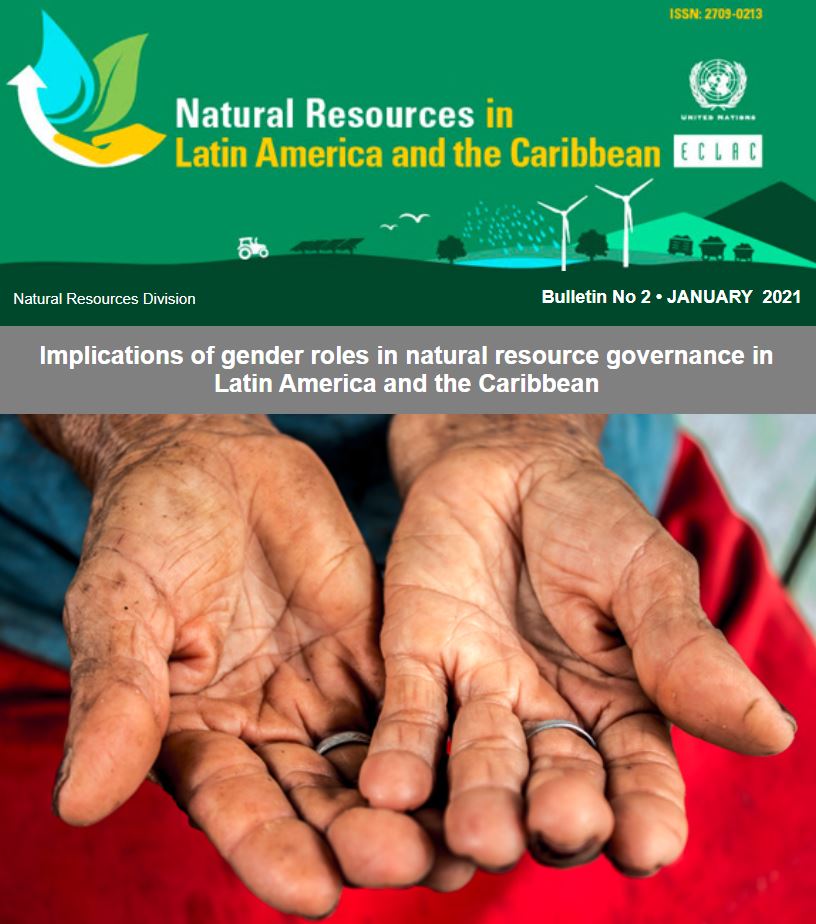Second Issue of the ECLAC’s Natural Resources in Latin America and the Caribbean Bulletin
Work area(s)
On January 2021, the Second Issue of the Natural Resources Bulletin in Latin America and the Caribbean was published by ECLAC’s Natural Resources Division and its aim is to analyze the implications of gender roles in governance of natural resources in Latin America and the Caribbean.

In Latin America and the Caribbean, unequal access to land, which underpins rights over all other natural resources and is a key asset to ensure productive inputs, has generated a gender gap in their governance. The structural discrimination that women face with respect to rights and access to natural resources also limits their political participation and economic productivity.
As the main providers of water, food and energy at the household and community levels, women in rural settings are often highly dependent on natural resources for their livelihoods and are therefore particularly susceptible to changes in availability and quality of these resources. It is presumed that this situation of vulnerability has been aggravated by the effects of the environmental crisis, climate change and the current global crisis due to the COVID-19 pandemic.
The Second Issue of ECLAC's Natural Resources in Latin America and the Caribbean Bulletin presents an analysis of gender relations with key natural resources for the region: biodiversity, water, energy, food, and mining. In addition, it identifies the main economic, social and environmental impacts of the existing gender gap and the opportunities to incorporate the gender approach in public policies related to these resources.
The results of this analysis show the regional need to implement public policies for the empowerment of women, which favor access to land and water ownership and promote their participation in formal and informal decision-making structures and governance processes related to the management of natural resources. It also reflects the importance of including the gender approach in employment generation policies, eliminating barriers and creating favorable conditions for the development of their capacities in the productive and sustainable use of natural resources, which would have a positive effect in terms of production and autonomy for women. Finally, mainstreaming the gender approach in all public policies related to the management of natural resources, as proposed by the 2030 Agenda, will allow the achievement of true sustainable development in the medium and long term.